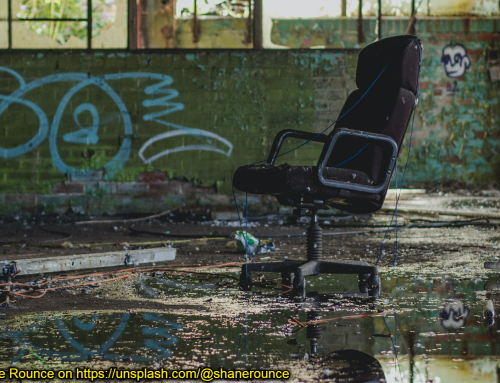Government Internet Intervention And Shutdowns On The Rise
An alarming number of governments have been using their clout to manipulate outcomes in elections and to prevent backlashes from their mistakes by taking significant control of the narrative on social media channels, private and public websites and the tabloids.
In the past 5 years more than 768 websites were taken offline before, during and after elections with more than 70 shutdowns from 21 countries so far this year alone.
Felicia Anthonio a campaigner from Access Now said:
“Since we began tracking government-initiated internet shutdowns, their use has proliferated at a truly alarming pace,”
“As governments across the globe learn this authoritarian tactic from each other, it has moved from the fringes to become a common method many authorities use to stifle opposition, quash free speech and muzzle expression.”
Though the actions have been condemned by the likes of the G7 and the UN High Commission for Human Rights and Special Rapporteurs, combating the problem is extremely difficult as it comes from the highest level.
Weaning Off Others Technology
Russia has a history of doing it themselves, primitively and not only succeeding but exceeding expectations. Take Vostok watches for example, back in late 1940 the Russian government approached Hans Wilsdorf the founder of Rolex to make their military watches, however the price they were quoted was so high they decided it would be more cost effective to build their own factory and make their own watches instead. The watches they made used slightly different methods using more basic tools to the standard manufacture, essentially simplifying construction which in turn actually made them more robust, water and shock resistant than their counterparts, proving that though more primitive and rough around the edges in comparison to the Rolex of the time, they were in fact a better overall product.
Now decades on Russia is doing the same thing again but with technology, though there is much criticism about Russia’s creation of a similar internet environment as that of China’s where citizens are only able to view government owned/state backed websites, social media platforms… and virtually nothing from elsewhere on the world wide web, they are also like they did with Vostok using primitive means to rebuild and build their technologies so that they are no longer reliant on the rest of the world for much of their manufacturing and products.
Sadly though it does seem that they are slowly following in China’s government model footsteps.
China’s New 1 Hour Gaming Time Limit Is Not Necessarily A Bad Idea
Though it certainly another means to controlling the people, the latest law passed by the Chinese government is not necessarily a bad one, I know many parents (and the odd married adult) who would only be too pleased for this law to be passed in their country too, that being a time limit for online gamers under the age of 18. The idea is to get young children to read, socialise and exercise more often.
The move came after research and concerns from the impact of excessive gaming on young children provided evidence that online gaming is having a negative impact on their lifestyles, many had become addicted to gaming, reclusive and many struggled socially outside the home.
The new laws which are by no means lax will allow children under the age of 18 to play on Fridays, weekends and during holidays for 1 hour only between 8pm and 9pm.
DON’T LEAVE YOUR IT TO CHANCE! LEAVE IT TO THE PROFESSIONALS!
India Looks To Quash Cybercrime
In the fight to reduce cybercrime at home and overseas and clear it’s unfortunately muddied name due to the influx in cybercriminals from its home territories, India’s government tasked its Parliamentary Standing Committee to fight cybercrime and to bring cybercriminals to justice.
Though in its infancy the technologies task force has taken giant steps in the prevention which will start to be rolled out in the weeks to come, the first of these changes will be the outright ban on VPNs, as statistics have shown other than cybercriminals, virtually no one in the grand scheme of things are using VPNs in India.
By removing access to VPNs which would otherwise disguise a user’s location, the government’s task force will be able to track down those involved and serve them their rights.
Though VPNs are great for keeping your data safe when searching online they are also one of the most popular tools used by criminals, it’s a catch 22 situation in the fight for online security.
Not A Smashing Start For Windows
Only a month to go before Microsoft launches Windows 11 on 5th October, but most won’t be able to install the new software even if the device is only a year or two old.
Testing through both the Dev and Beta channels has come to a close, but many of those who had installed the system during the testing phase and were using many of the functions until now have since received messages from Microsoft informing them that their computers are not compliant:
“Your PC does not meet the minimum hardware requirements for Windows 11”
And therefore have been requested to reinstall Windows 10 which will be supported until 2025, they have been given the option to install the ISO version if they wish to continue to use Windows 11 but they will not receive any updates.
Microsoft has not specified which components and devices are suitable as yet and have not launched their compatibility testing tool to allow us to see if our devices are compatible or not.
Their reasons for not allowing more devices the ability to use Windows 11 is apparently due to Microsoft’s improvements in security, though they did decide not to mention all of the new interactive, tracking, and visual tracking software they wish to use that older devices won’t be able to make use of.















